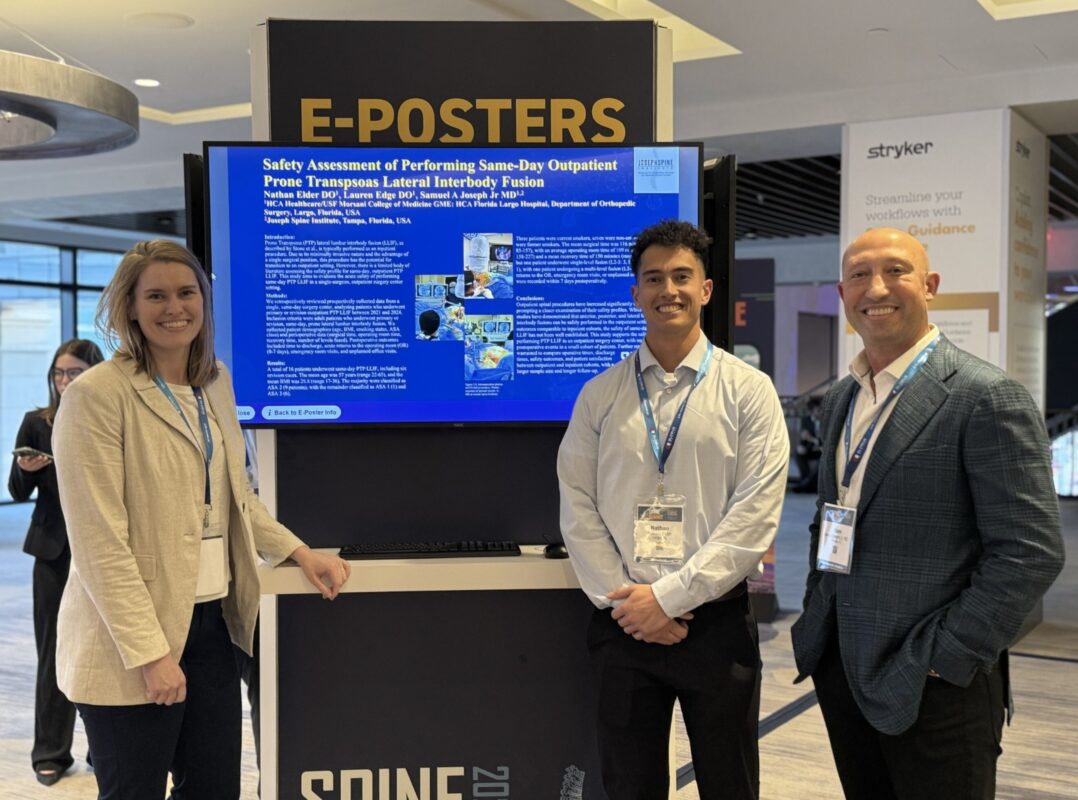Dr. Samuel A. Joseph Jr. Named Clinical Assistant Professor of Orthopaedic Surgery at HCA/USF Orthopaedic Program

Dr. Samuel A. Joseph Jr. a leader in minimally invasive and complex spine surgery, will bring his wealth of experience and innovative approach to the academic setting, enhancing the educational experience of residents and medical professionals in the field of orthopedic surgery.